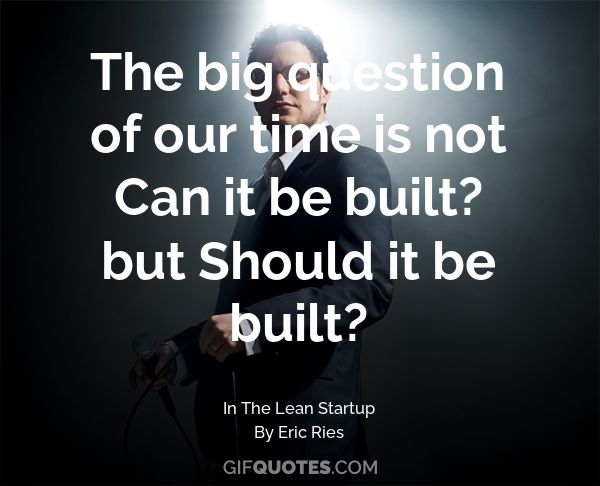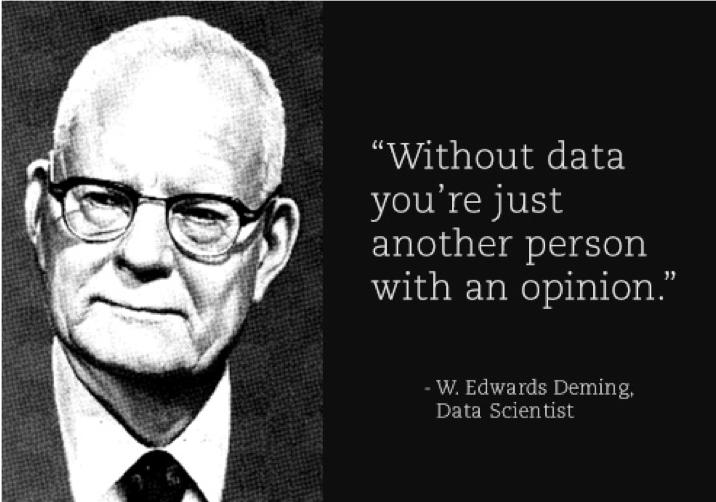The real purpose of an MVP is to answer “should it be built?” instead of “can it be built?” by validating that there is a market for your product before spending a ton of time and money on building out the full product.

I’ve personally seen tons of startups and product teams fail at deploying products and MVP’s, where you’re excited about a new idea and you really want to start developing your solution because you “already know everything about your customers” and this is a “billion dollar idea.” So you skip the market research and dive into the MVP development completely blind to the needs of your potential customers while also missing valuable lessons from competitors who have tried this solution and failed.
And then you spend a bunch of time and money deploying a product and you wonder why nobody is buying it or even using it, becoming a statistic on failure in the process.
Cue the violin.
So please learn this valuable lesson on market research from the 90% of startups that fail each year…
Reason #1: Research Provides an Accurate View of Market Size & Customer Demand
The number one reason why startups – and ultimately their products – fail is due to misunderstanding market demand, which accounts for 42% of all startup failure!

Proper market research analyzes market size, competitors, and demand for a product, where typical market research plans include the following six things:
- Measure customer demand
- Identify trends
- Analyze buyer behavior
- Analyze competitor behavior
- Identify target markets and determine sales potential
The most important of these is understanding customer demand, which is determined by how willing consumers are to spend a certain price on a particular good or service. As market demand increases, so does price. When the demand decreases, price will go down as well.

I highly recommend utilizing market research campaigns as a mechanism for understanding the demand from potential customers, and experimenting with the different demand levers to get an optimized view of demand for your still undeveloped product.
Reason #2: Research Enables Proper Planning & Budgeting
The second reason why startups – and ultimately their products – fail is due to running out of funding and personal money.
The first reason of startup failure (due to misreading market demand) has a profound impact on the second reason of failure (due to lack of funds), where companies who lack insights into their target audience will deploy a product, gain no traction in the market, and then dump more and more money into chasing success with more product development by adding more and more features. All of which are irrelevant because these additional features – along with the entire product – don’t support the market’s needs, which is still unknown because the company never did any market research.
Not only will market research help you identify what to build and who to build it for, it will also help you develop an accurate view of capital needs to support your MVP budgeting and planning process. The market insights will provide the data to help you make the right decisions between balancing cost and quality in your MVP as well as in later phases of deploying your full product.

Smart founders know that at any stage of the company building process the budget is a bottom up planning activity. For early stage startups it’s best to keep it simple – it makes no sense to try to make the budget overly complex with impossible to validate assumptions and complex formulas. This is an easy budget process I’ve learned about by working with founders:
1 — It all starts with an organizational design that can scale during the next 12 months and a clear definition of each ‘to be hired’.
2 — A high level product roadmap is a key tool in order to be able to assess the organizational design and the rightsizing of the resource allocation.
3 — Clear definition of a marketing plan with deep level of task definition, again to feed into the organization design / resourcing.
4 — Depending on the characteristics of the business, a sales plan with clear drivers which is mapped back to the organizational chart. This is also what the key revenue assumptions are built on.
Reason #3: Competitive Analysis Helps Reduce Risk
Additionally, performing market research will ensure that you’re identifying key competitors and spending the necessary time analyzing their business models and product strategies, which is critical to developing a product that is unique and differentiated. This step cannot be understated, where I’ve even seen some the brightest minds from MIT fail at this basic startup concept.
One of the first steps of competitive analysis is to determine whether or not your product concept has been tried before. And if so, did it succeed and is it still a viable product? If not, why did it fail? Did they explore any pivots?

This is critical to reduce the downside risk of your product concept. It doesn’t mean that you still can’t build it, but it requires more thought to develop a unique and differentiated product and business model.
Researching your competitors will also provide the insights into your customer engagement and acquisition strategy, and inform your marketing strategy and budget. Even the best products need to be promoted or they are doomed to chance, especially in the hyper-competitive technology sector.
Reason #4: Research Provides the Data to Validate (or Invalidate) Opinions
And lastly, market research will balance out the overly-opinionated voices (i.e. egos) in a startup with good objective data. All too often the loudest voices in a startup – especially if they’re founders or leaders – are the ones that drive product decisions, and this is delusional.

It’s important to embrace Agile ideals like “great ideas come from anywhere” and “data over opinion” as critical components to developing successful MVP’s and products – especially now that the future of work has arrived and great talent is hard to find and even harder to retain.
I can say with 100% certainty that that loudest voice in the room is rarely the smartest, whereas the person with the best data is the one I’ll always trust to make the best product decisions.





One thought on “4 Great Arguments Why You Need to Start with Market Research When Developing MVP’s”